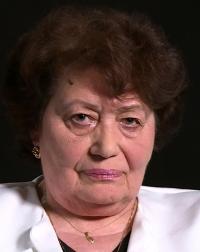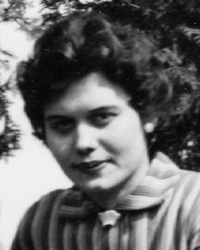Our neighbor did not want me to study

Download image
Jarmila Zichová, single as Gabrielová, was born in Semonice in 1939 as the eldest of two daughters. Both parents were evangelicals and came from a peasant family. Most of the time, they worked hard on the family farm and adjacent land. During the war, she met Germans, Russians and French, who passed through the family lands. After the end of the war, she joined the municipal school where she was influenced by evangelical teachers Jaroslav Zeman and Bohumil Lopour. During collectivization, the Gabriels as private farmers had to face pressure to enter collective farms. In 1954, the witness got to Děčín for an agricultural school. During her studies, she joined the Youth Union and became the local president. She graduated in 1958 to an excellent degree, but out of fear of the class origin she did not go to university and joined the municipal department of the city of Kolín. After a year of employment, she received a recommendation from the director of the company to study at the University of Agriculture in Prague, where she successfully passed the entrance exam. However, after starting her studies, she was expelled from her studies as a disputed case without the possibility of appeal. She returned home and joined the municipal department in Smiřice, where she met her husband Miloslav Zich. Her marriage to a later regional school inspector helped her from her past, and after maternity leave, she started working as the head of a school canteen, where she spent the next twenty-six years. After 1989, the family lands remained with the cooperative from which the family used to receive rent. She did not receive compensation from the state for not being able to study as a believer.

